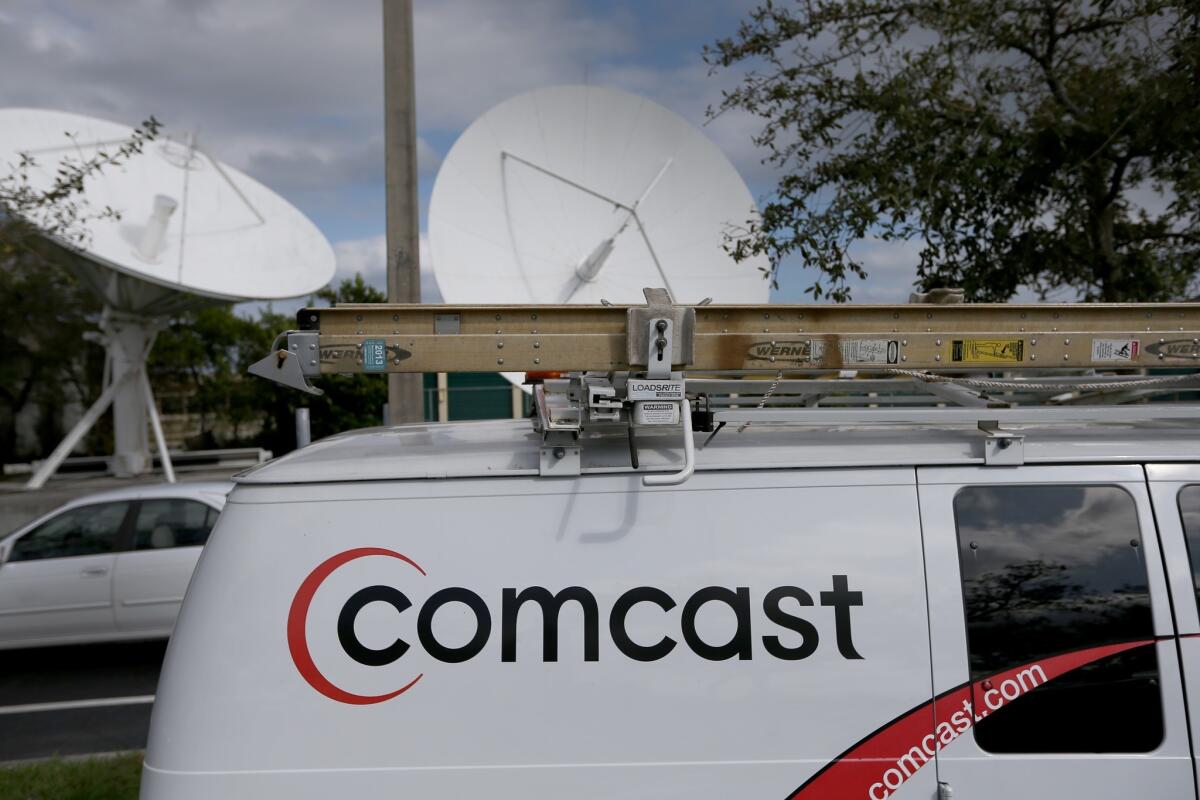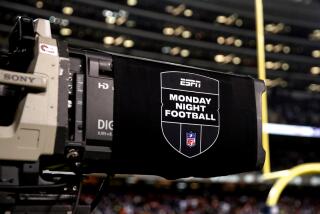Comcast/Time Warner: The making of a cable TV giant

The proposed merger between Comcast and Time Warner Cable, the country’s two largest cable TV operators, generated a predictable wave of outrage from opponents of corporate consolidation. With about 30% of all pay-TV customers served by its wires, the combined company would have extraordinary leverage when negotiating with television networks over the fees for their programming. It also would be the gatekeeper to a third of all U.S. homes with broadband.
Those are scary scenarios for consumers and content companies. The underlying problem for them, particularly in broadband, is that today’s markets have too few competitors to protect against service providers that put their thumbs on the competitive scales. But while Comcast’s takeover of Time Warner Cable wouldn’t improve that situation, it wouldn’t necessarily make it worse either.
Unlike AT&T and T-Mobile, whose proposed merger was blocked by the Justice Department, Comcast and Time Warner Cable don’t go head-to-head in any markets. Their lines run in different cities, or in the case of New York and a few other towns, in different neighborhoods. So the concerns raised by the deal stem mainly from the extra weight Comcast will be able to throw around when negotiating for content, equipment and bandwidth.
Some supporters of the deal say that a larger Comcast-TWC entity would be able to pay TV networks less for their programs, holding down the fees that have driven up consumers’ monthly cable bills. That may be true, but there’s also the risk that Comcast would use its leverage over TV programmers to gain an unfair advantage over other pay-TV providers, such as DirecTV and Verizon’s FiOS. Or that it would charge them excessive fees for the programming networks it owns, including NBC and regional sports channels.
In broadband, the merger could accelerate Comcast’s efforts to create a nationwide Wi-Fi-based data network to compete with the mobile phone companies’ offerings. But it also would let Comcast impose data caps and other market-distorting restrictions on millions of additional customers. Not coincidentally, such restrictions could make life more difficult for Netflix and other online services that are growing in popularity at cable operators’ expense. The merger would give Comcast more incentive and opportunity to engage in such mischief.
The shortage of broadband service providers — most homes have no more than two to choose from —leaves consumers with little ability to dump an Internet service provider whose terms they don’t like. Regulators have a head start, however, in stopping Comcast from abusing the market power it would gain by acquiring Time Warner Cable. The Federal Communications Commission imposed a number of restrictions on Comcast in 2011 when it bought NBC Universal, aiming to protect against self-dealing and other forms of anti-competitive behavior online and on its cable system. Among other things, Comcast is compelled to live by the FCC’s “net neutrality” rules, even the ones a federal appeals court has thrown out. Those protections would go a long way toward mitigating the risks posed by the expanding bulk of Comcast, while still allowing two noncompetitors to join forces.
More to Read
A cure for the common opinion
Get thought-provoking perspectives with our weekly newsletter.
You may occasionally receive promotional content from the Los Angeles Times.






